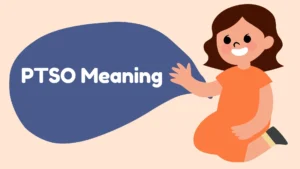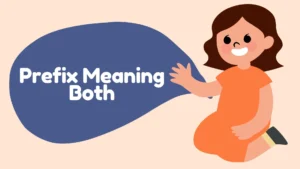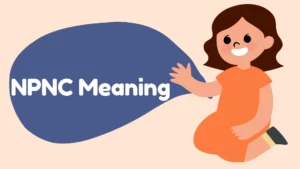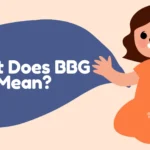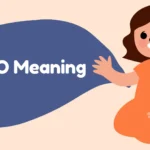The internet and popular culture have given rise to many slang terms, each carrying its own meaning, weight, and usage. One such term that has stirred significant controversy and emotional response is “chomo.” This word isn’t just another piece of slang—it carries serious implications and is often used in extremely sensitive or accusatory contexts. As such, understanding the term “chomo,” where it comes from, how it’s used, and what it truly means is vital to responsible communication.
Whether you’ve come across it in social media posts, prison documentaries, or conversations around criminal behavior, it’s important to unpack the full scope of the word and the emotions it triggers. This article will delve into the definition, origins, usage, and misconceptions surrounding the term, offering a well-rounded view for those seeking clarity.
What Does “Chomo” Mean?
“Chomo” is a slang term, most commonly used in the prison system, that refers to a child molester. It is a highly derogatory term, often used to label someone accused or convicted of crimes against children, particularly sexual abuse. In inmate culture, being labeled a “chomo” carries extremely dangerous consequences, as such individuals are often targeted, ostracized, or even physically harmed by other prisoners.
The word itself is a shortened form derived from “child molester”, with “cho” taken from “child” and “mo” from “molester.” While some people might use it jokingly or carelessly online, it’s important to understand the seriousness with which the term is taken in real-world and institutional settings.
Because of its intense connotation, the term is not used lightly and is generally seen as a label of extreme condemnation. Misuse or casual use of the term, especially without evidence or context, can lead to significant reputational damage, legal issues, or even violent consequences.
Other Ways to Say “Chomo”
Though “chomo” is a prison-specific slang, there are other terms—some formal, some colloquial—that communicate similar meanings. Here are some common alternatives:
- Child molester – The clinical and legal term.
- Predator – Often used in both legal and informal contexts.
- Offender – Used in law enforcement and legal documents.
- Pedo – A slang abbreviation of “pedophile.”
- Creep – A milder term, sometimes used euphemistically.
While these terms may vary in intensity and legality, it’s crucial to understand the nuances. For instance, “pedophile” refers to someone with a sexual attraction to children, which doesn’t necessarily imply criminal action, while “child molester” implies direct abuse or criminal behavior. Slang terms like “creep” or “pedo” are sometimes thrown around online without full understanding of their implications.
Definitions & Meaning
The term “chomo” can be broken down linguistically and contextually:
- Linguistic origin: “Chomo” is a portmanteau, blending parts of “child” and “molester.”
- Definition: A derogatory slang term primarily used to describe individuals who have committed sexual crimes against minors.
- Contextual weight: In prison culture, the term implies the lowest social status among inmates. It’s not only a label but a threat.
It’s crucial to recognize that “chomo” is never used in a neutral or descriptive way—its application is always charged with moral and emotional judgment. In many cases, even the accusation of being a “chomo” can lead to social or physical repercussions, whether or not the label is accurate.
Origins & History
The term “chomo” originated in American prison slang, becoming widely recognized during the late 20th century. As prison populations grew and inmates began creating their own systems of justice, certain crimes—especially those involving children—became deeply stigmatized within that environment.
Prisoners labeled as child molesters often faced intense discrimination and violence from other inmates. This led to the need for a shorthand term to identify such individuals, and thus, “chomo” was born.
The term gradually made its way outside prison walls through media, documentaries, and internet forums. Shows like Locked Up or 60 Days In have further popularized the term, giving the general public a glimpse into how serious this label is within correctional institutions.
Example
Here are a few real-world examples of how “chomo” might be used:
- In a prison documentary: “That guy’s a chomo. He doesn’t leave his cell much.”
- On social media: “Why is everyone defending this guy? He’s basically a chomo.”
- In a conversation: “I don’t care what else he did. Once you’re a chomo, you’re done in here.”
Each usage context signals deep disdain or danger. In casual settings like social media, the term is sometimes used loosely, but in legal or prison environments, it’s much more serious.
Usage in Different Contexts
1. Prison Culture: This is the most serious context. Being labeled a “chomo” in prison often results in isolation, attack, or being placed in protective custody. The term is part of a caste system among inmates, and it signifies the lowest status.
2. Social Media: Online, the term is sometimes used irresponsibly or to incite outrage. Users may accuse public figures or individuals of being a “chomo” based on rumors or without evidence, leading to cancel culture consequences.
3. Pop Culture: Some true-crime shows and documentaries have included “chomo” in their dialogue, which has increased public awareness of the term. However, this exposure can sometimes normalize its casual use without recognizing the harm it can cause.
4. Legal and Law Enforcement: While the term “chomo” is not officially used in legal settings, law enforcement may refer to it informally. Official documents use terms like “child sex offender” or “pedophile.”
Common Misunderstandings & Clarifications
Misunderstanding 1: “Chomo” is just internet slang. Clarification: It originates from prison culture and has life-or-death consequences in that context.
Misunderstanding 2: Everyone labeled a “chomo” is guilty. Clarification: In prisons and online spaces, accusations can be based on rumors or incorrect information.
Misunderstanding 3: It’s okay to use “chomo” as a joke. Clarification: Due to the seriousness of the term and the crimes it implies, using it as a joke is highly inappropriate.
Misunderstanding 4: “Chomo” and “pedophile” mean the same thing. Clarification: “Pedophile” refers to a psychological condition, whereas “chomo” implies action and criminal behavior.
Alternatives & Synonyms
When discussing such sensitive topics, it’s often more appropriate to use precise language. Here are some alternatives:
- Child Sex Offender: Legal term used for those convicted.
- Sexual Predator: Broader term used for repeat offenders.
- Pedophile: A clinical term used by psychologists.
- Abuser: A general term, depending on the context.
- Offender: Common in legal documents.
Each of these terms should be used with care and only when accurate, as mislabeling someone can have devastating consequences.
Frequently Asked Questions (FAQ)
1. What does “chomo” stand for? It stands for “child molester,” using parts of each word.
2. Where did the term “chomo” originate? It originated in American prison slang.
3. Is calling someone a “chomo” illegal? Not illegal, but it can be defamatory if untrue.
4. Can you be labeled a “chomo” without being convicted? Yes, especially in prison culture or online, where rumors can spread quickly.
5. What happens to “chomos” in prison? They are often isolated for their protection or face threats and violence.
6. Is “chomo” ever used outside of prison? Yes, particularly on the internet, in true-crime media, and in conversations about criminal justice.
7. What’s the difference between a “chomo” and a “pedophile”? A pedophile may not have committed a crime; a “chomo” implies criminal behavior involving children.
Conclusion
The term “chomo” is one of the most stigmatized and emotionally charged slang expressions in both prison and internet culture. Though short in form, it carries heavy implications—often relating to some of society’s most serious and disturbing offenses. Understanding what it means, where it came from, and how it is used can help avoid misuse and ensure conversations remain informed and respectful. As language continues to evolve in both online and offline spaces, being aware of the deeper meanings behind such terms is crucial.
Whether you encounter it in media, conversations, or online platforms, knowing the weight of the word “chomo” helps you navigate the discussion with caution, clarity, and responsibility.




